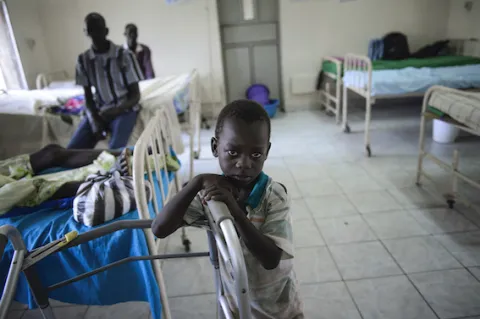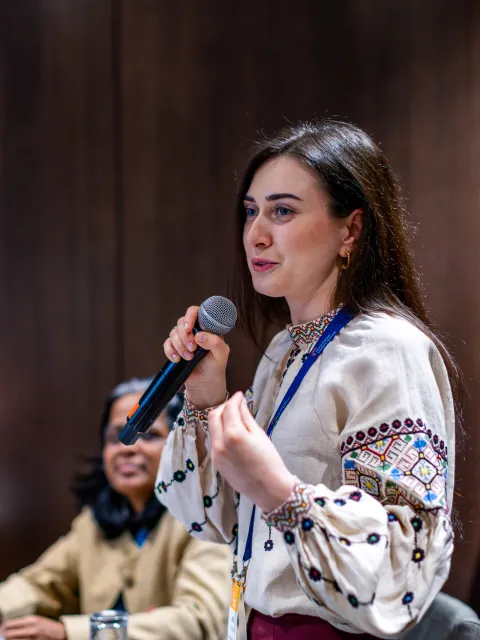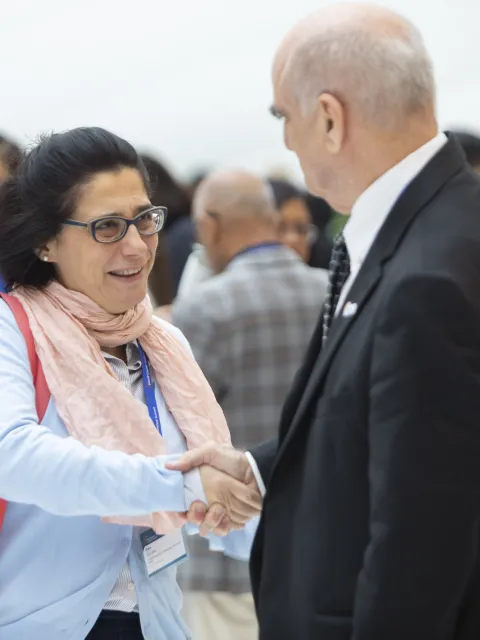Decades of conflict in Sudan have made cancer planning nearly impossible
Civil wars, tribal conflicts and lack of public funding have depleted Sudan’s health resources as cancer organisations face monumental challenges to provide care.

Sudan is the third-largest country in Africa, with a population of nearly 45 million. The country experienced more than five decades of civil war, with only a brief period of respite. The Second Sudanese Civil War ended in 2005, which led to the seccession of South Sudan a few years later. These years of conflict caused not only a significant death toll, but also starvation and disease.
Paediatric cancer patients in Sudan ask Ministry of Health for chemotherapy drugs
Sudan has also only just emerged from a 30-year-long dictatorship marked by human rights abuses, ethnic cleansing and the displacement of villages. Tribal conflicts erupted in the western region with the emergence of armed movements against the government, while Eastern Sudan suffered not only from tribal conflicts but also border conflicts with Ethiopian militias. [1]
“These conflict areas have become devoid of basic health services, constantly subjected to sabotage and looting,” says Dr Lara Idris, Quality Manager and Chief Radiation Therapist at the Khartoum Oncology Hospital (KOH), a UICC member organisation that is part of the Cancer Advocates programme.
“Essential drugs are not available and individual patients have to buy them at a very high cost and often can’t afford them. This leads to major delays at best and grave outcomes for patients with potentially curable blood cancers. In addition, we don’t know how the medication often comes from outside the country, from Egypt for instance, by road not by plane and we don’t know how is stored.”
– Dr.Moutaz Abdelrahman, Consultant Hematologist, Khartoum Oncology Hospital
While eight centres across Sudan offer chemotherapy sessions to patients, most are not working currently due to an acute crisis in the availability of medicine. Furthermore, only three public facilities in Sudan – in Khartoum, Wad Madani and Shendi, therefore concentrated in the centre of the country – provide on-site chemotherapy. Only the Khartoum Oncology Hospital provides radiotherapy – and no other services, such as oncological, surgery and diagnostics.
The number of cancer patients greatly exceeds the capacity of the centre. The Khartoum Oncology Hospital was the first facility historically to provide cancer care in Sudan and where most of the top oncologists are located.
The hospital was established in 1967 to receive 100 cases at a time but now has to manage 1,200 new cases every month on top of 8,000 referrals and some 15,000 annual cases under treatment.
Furthermore, the National Cancer Registry is inactive. Most of the statistics are obtained from cancer hospitals for patients how are registered in the health system, making it difficult to properly and accurately plan the services that cancer patients need. “For this reason also there is no national cancer strategy, so most cancer centres operate without a centralised vision for development,” says Dr Idris.
How Sudan continues to push the frontiers of cancer care in Eastern Africa
Sudan was one of the first African countries to recognise the importance of radiation oncology in the 1960s. Today, there are four comprehensive cancer centres in the country with 10 radiation therapy machines.
To address this dire situation, the Khartoum Oncology Hospital has started issuing a series of media statements and organising press conferences targeting businessmen and relevant government institutions – as well as initiated social media campaigns – to ask for urgent financial, logistical and technical solutions.
These include developing a strategic plan for the hospital supported by a plan to expand services in a sustainable manner and ensure they are of high quality, in particular new facilities to accommodate the increasing number of patients. There is also a desire to see cancer organisations collaborate on a national cancer strategy.
“Sudan is considered one of the leading countries in the field of cancer treatment in Africa. The collapse of the cancer treatment system in Sudan and the deterioration and destruction of services were caused by the lack of a strategy to combat cancer and an absence of private financing as well as by wars, conflicts and a weak public budget.”
– Dr Lara Idris, Quality Manager, Chief Radiation Therapist at the Khartoum Oncology Hospital.
Read the other articles in the series on "Cancer in zones of unrest"
- The challenge of survival in Lebanon
- Conflict in Yemen reverses years of progress and gains in cancer care
____________________________
[1] https://www.britannica.com/place/Sudan
“Essential drugs are not available and individual patients have to buy them at a very high cost and often can’t afford them. This leads to major delays at best and grave outcomes for patients with potentially curable blood cancers. In addition, we don’t know how the medication often comes from outside the country, from Egypt for instance, by road not by plane and we don’t know how is stored.”
– Dr.Moutaz Abdelrahman, Consultant Hematologist, Khartoum Oncology Hospital
Last update
Monday 02 August 2021
